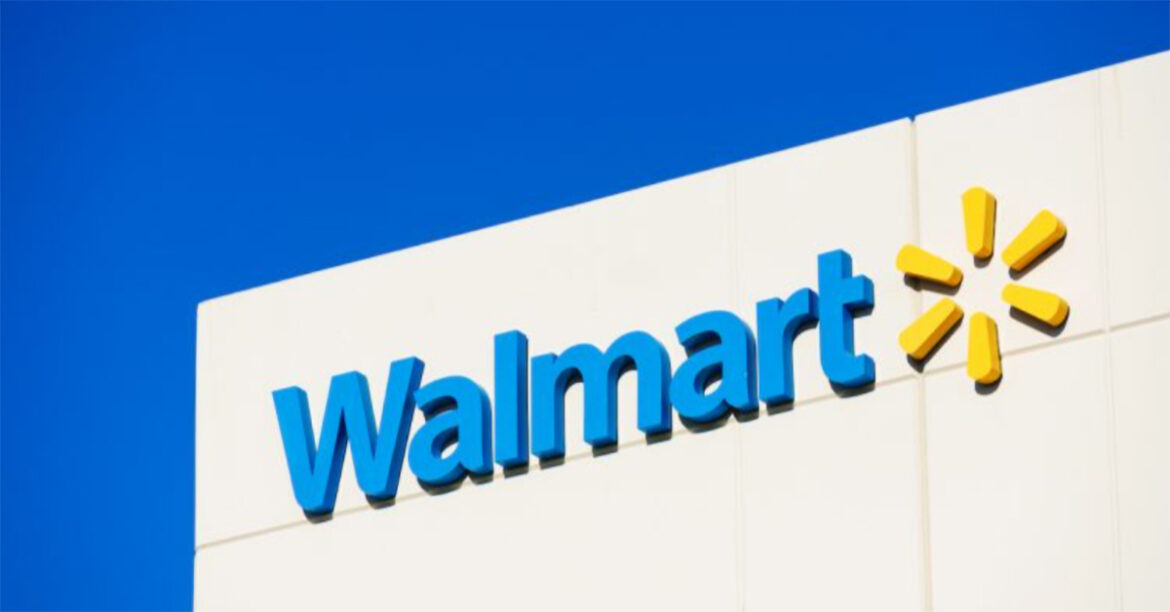This blog will discuss a case study of Walmart’s Supply Chain and analyse how blockchain technology transformed it.
Introduction
Walmart is a giant in the global retail industry, commanding an enormous presence with its vast network of stores and distribution centres. As a leader in the sector, Walmart has long recognised the need to innovate continually, particularly in its supply chain operations, which are the lifeblood of its retail dominance. In food retail, the urgency for innovation is pronounced, with growing consumer demands for transparency and the utmost safety. In this context, Walmart has embarked on a journey to reimagine its food supply chain through technology, ensuring that products are efficiently distributed and meet the high standards that customers are used to expecting.
The Rise of Blockchain in Walmart’s Supply Chain
Blockchain technology, synonymous with digital currencies, has far-reaching implications beyond financial transactions. As is known, blockchain provides a decentralised ledger system, ensuring high levels of traceability and security, features that are particularly beneficial in supply chain management. Walmart’s journey into blockchain was driven by a vision to enhance the visibility and integrity of the complex journey that food products undergo from farm to table.
The motivations for Walmart’s adoption of blockchain were twofold. First, it would provide transparency to consumers who are increasingly health-conscious and concerned about the origins of their food. Second, it would improve the efficiency of Walmart’s operations, allowing for swifter action in the event of food recalls and better management of shelf life and inventory levels. By integrating blockchain into its supply chain, Walmart has set a new standard in the industry that could potentially reshape how retailers approach the challenges of modern food safety and traceability.
Tracking Food from Farm to Store
Blockchain technology has revolutionised Walmart’s ability to track the journey of food products with extraordinary detail and efficiency. At the heart of this technology is a digital ledger that securely records data that cannot be changed once entered. This characteristic is crucial for establishing a transparent and trustworthy trail from the farm to the consumer. When a fruit or vegetable is picked from the field, the details of its harvest are logged. As it moves to processing and packaging, each step is recorded. Finally, as the product is shipped and arrives at Walmart’s store, its movement is updated in real-time. For Walmart, this means the ability to pinpoint the exact location and handling history of any food item within their supply chain almost instantly.
There are several benefits of such detailed tracking information. It allows Walmart to manage stock levels more precisely, ensuring stores are adequately supplied without excess, thus reducing waste. It also aids in forecasting demand more accurately, as the flow of goods can be analysed in real-time to identify purchasing patterns. Moreover, if a supply chain disruption occurs, such as a transportation delay, Walmart can proactively manage the situation, redirecting stock from other locations to cover potential shortfalls.
Enhancing Food Safety and Recall Efficiency
Blockchain’s contribution to Walmart’s food safety and recall processes is particularly noteworthy. With traditional methods, identifying the source of a food safety issue could be a slow and cumbersome process, sometimes taking days to track the problematic item to its source. This delay could have severe consequences regarding public health and brand reputation. Blockchain technology changes this dynamic by enabling a rapid, precise response. Suppose a batch of produce is reported to be contaminated. In that case, Walmart can use blockchain records to swiftly trace the data back to its source and identify all the potentially affected items across its stores.
The advantages are significant: quicker recalls, minimised risk of illness, and less waste of unaffected products. An example of this efficiency was demonstrated in a pilot program where Walmart could trace the source of a pack of mangoes in mere seconds, a process that previously might have taken days. This responsiveness not only ensures that unsafe products are quickly removed from the food supply but also reinforces consumer confidence in Walmart’s commitment to safety. By setting such standards, Walmart not only protects its customers but also pressures suppliers and competitors to adopt similar measures, thereby raising the bar for food safety across the retail industry.
Ensuring the Authenticity of Organic Products
Blockchain technology stands as a guardian of truth for Walmart’s organic products. It ensures that every item labelled ‘organic’ adheres to well-defined standards from origin to the point of sale. This journey is carefully recorded: every organic certification, every natural process, and every compliance check along the way is documented in an immutable ledger. For health-conscious shoppers, this is crucial, as it guarantees that the premium they pay for organic goods is justified, ensuring that these products are free from synthetic fertilisers and pesticides and comply with all regulations governing organic produce.
The impact is twofold: it solidifies consumer trust by providing them with verified information and carves out a clear market distinction for Walmart’s organic range. In a marketplace where claims of natural and organic are often viewed with scepticism, Walmart’s ability to verify its products’ authenticity can significantly influence purchasing decisions, fostering a sense of loyalty among consumers who value transparency and quality.
Building Consumer Trust Through Technology
In the digital age, the transparency enabled by blockchain is the foundation for building consumer trust. Walmart’s use of this technology to describe the supply chain empowers customers with knowledge, allowing them to make educated decisions regarding the products that they consume. This level of openness is a testament to Walmart’s commitment to ethical practices and quality, reassuring customers that the retailer is not just a conventional seller of goods but a responsible community member who values consumer welfare.
The direct line of sight into the product’s journey from farm to store reduces the uncertainty that often surrounds the origins of food items. As a result, customers are more likely to develop loyalty to a brand they trust. Over time, this trust translates into repeat purchases and a strong brand reputation as satisfied customers share their positive experiences. Walmart’s technological stride in supply chain management thus not only secures customer confidence but also enhances its brand image, potentially setting a new benchmark for retail excellence that others in the industry may aspire to reach.
The Challenges and Future of Blockchain in Retail
While blockchain technology is a powerful tool for Walmart, it also has challenges. One of the biggest hurdles is integrating this technology across the entire supply chain, which involves many players, from small farmers to large distributors. Each participant needs to buy into the system and have the capability to participate, which can be a significant barrier, especially for smaller, less technologically advanced suppliers.
Looking ahead, Walmart’s pioneering work with blockchain could set a new standard for the retail industry. As other companies observe Walmart’s successes and learn from its challenges, they may also begin to adopt similar technologies. Blockchain might become a leading force in supply chain management, potentially transforming the industry and making transparency and efficiency the norm.
Conclusion
Walmart’s journey into blockchain has markedly transformed its supply chain operations, making them more transparent, efficient, and safe. This innovation has strengthened consumer trust and positioned Walmart as a retail supply chain management leader. As Walmart continues to refine its blockchain system, it serves as a sign of innovation, demonstrating the ongoing importance of technological adaptation in the retail sector. The future of retail, influenced by Walmart’s steps, may well be characterised by a continuous commitment to quality, transparency, and trust, improving consumer relationships and setting new standards for retailers worldwide.



